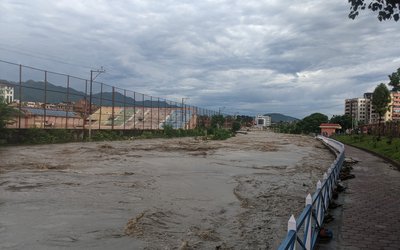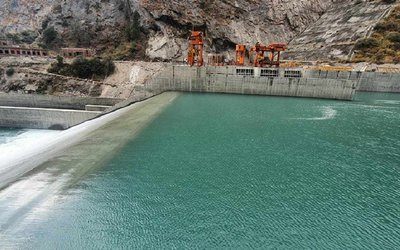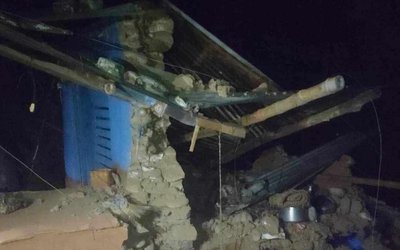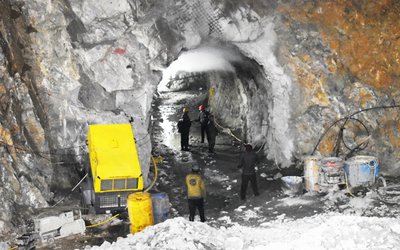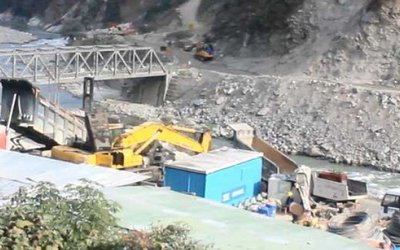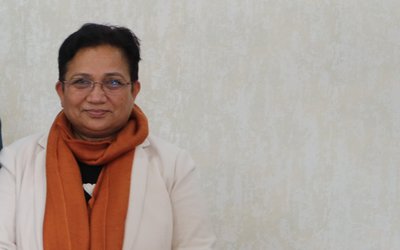
At a time when Nepal government has been unable to link large parts of Nepal with the national energy grid and when no immediate solution to power outages is in sight, alternative energy sources are increasingly making a better sense. As it is, Nepal’s poor and vulnerable population will either need to live without adequate energy for a long time to come or find a way to access and use alternative energy.
The recently released Total Energy Access (TEA) has shown a bleak scenario for the country. Trends indicate Nepal is likely to miss the international target of providing universal access to energy for all by 2030. Data also show an urgent need to change the current delivery model to one which can increase and accelerate access to energy, ending the 'energy poverty' of Nepal. Increasing ‘Total Energy Access (TEA)’ can create sustainable economic growth, both through the delivery of energy supply and the subsequent economic activities enabled by access to energy.
The Total Energy Access – Time for TEA program is a joint programme of National Planning Commission (NPC) and Practical Action, organized with the objective to create awareness about the need of Total Energy Access (TEA), Minimum Energy Standards and multi-tier monitoring framework in the context on Nepal. The event aimed at raising demand for formulating energy policies, plans and programs based on the TEA approach.
“Despite huge potential for switching to renewable energy sources, Nepal is yet to utilize its potential. Nepal needs to exploit these sources to provide Total energy Access (TEA),” said Professor Dr. Govinda Pokharel, executive director of Alternative Energy Center, in a program. "Energy is vital for poverty alleviation and improvement of livelihood of the people.”
During the program, various experts and speakers from UNDP, NPC, AEPC and Practical Action presented their views on different areas related to the Total Energy Access, concept and emergence of TEA and its relevance in the SE4ALL initiative.
They spoke of the urgent need to change the current delivery model to one which can increase and accelerate access to energy.
Experts argued that Total Energy Access (TEA) is the right of all to have access to minimum energy services for lighting, cooking and water heating, space heating, cooling, information and communications technologies and earning for living. Without these basic energy services, the people living in poverty are forced to live on the margins of society.
Electricity, fuels and mechanical power are crucial for agricultural outputs, commerce, industrial activities, micro-enterprises and transportation. Practical Action has been raising the issue of total energy access for sustainable livelihood improvement. It has been a leading policy advocacy for recognizing ‘Total Energy Access minimum standards and the Energy Supply Index of supply quality’ while setting national targets for universal energy access by 2030.
The energy system of Nepal is characterized by inadequate modern and efficient energy sources on the supply side and inefficient use of available energy in the demand side. Many people are deprived from basic energy access. Still, about 40 percent of rural households do not have access to electricity.
Economic activities either rely on energy or are substantially improved in their productivity, profitability or efficiency by the introduction of improved forms of energy access.
Without having total energy access with minimum standards, one cannot expect significant improvement in the people’s livelihood, including health and MDG targets. Likewise, the energy access monitoring framework also needs to be revised to fit the new context.
Practical Action has been initiating various programs to increase energy access in rural parts of Nepal. The Energy program in Nepal plans to increase access to energy in lightning, and clean and efficient technologies for cooking, benefiting 150,000 rural populations.
“Practical Action focuses mainly on developing and testing new innovative ideas to engage the private sector in providing access to modern energy resources for the poor, and also developing enabling environment for increasing the role of private sector in energy access and increasing access to finance. It will demonstrate decentralized energy systems with particular focus on achieving minimum energy standards and total energy access to achieve universal access to energy by 2030,” said Achyut Luitel, country representative Practical Action.
“Energy access has been dividing the world into those who have the capacity to improve their lives from those who are trapped in a cycle of poverty (PPEO 2010). Not only is energy crucial for people to meet their basic needs, but it also enables people to work their own way out of the cycle of poverty,” said a press release issued by Practical Action.
There is urgent need to end the '"energy poverty" in Nepal. Increasing ‘Total Energy Access (TEA)’ can create sustainable economic growth, both through the delivery of energy supply and the subsequent economic activities enabled by access to energy.
Practical Action’s report focuses on energy for community services: health, education, public institutions and infrastructure. Without access to modern energy services there is little prospect for delivering key community services. In turn, international development goals will not be achieved if health, education and other local facilities are not effective.
- MELAMCHI WATER SUPPLY: No Interruption During Monsoon
- Jun 25, 2025
- KOREAN RETURNEES: Successful Integration
- Jun 25, 2025
- UPPER TRISHULI-1: Engaging With Local
- Jun 25, 2025
- IME GROUP: Twenty Five Years Of Journey
- Jun 24, 2025
- NEPAL’S AIR POLLUTION: A Growing Health Concern
- Jun 24, 2025
